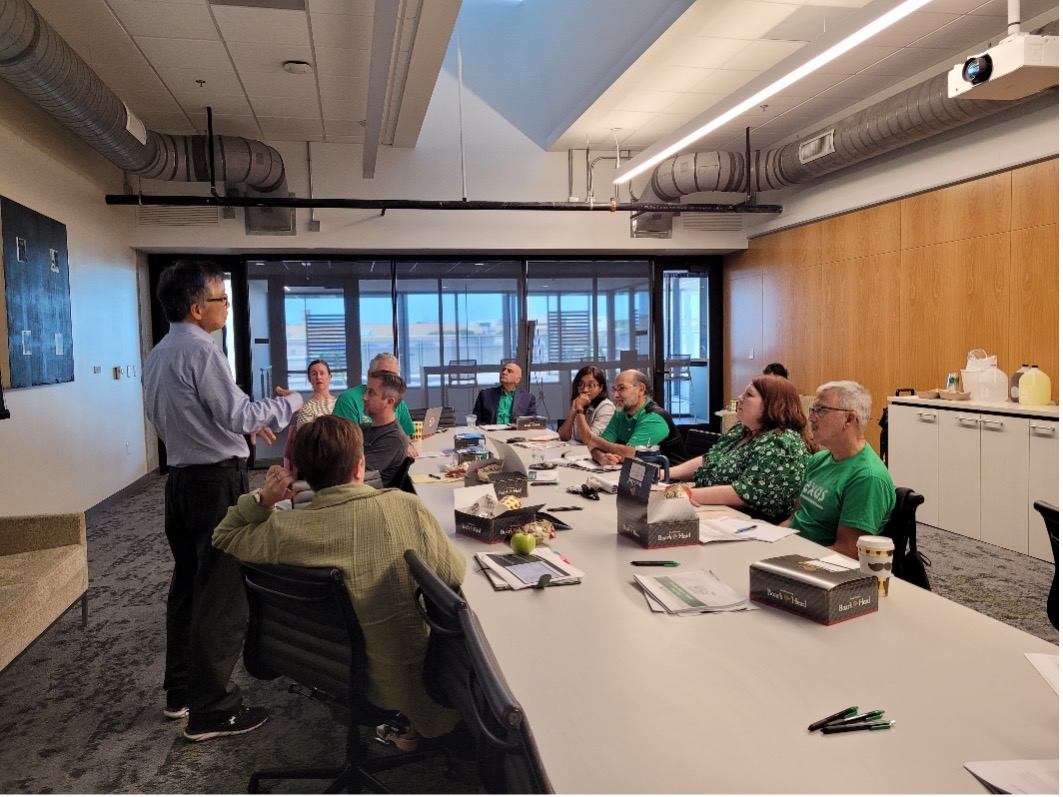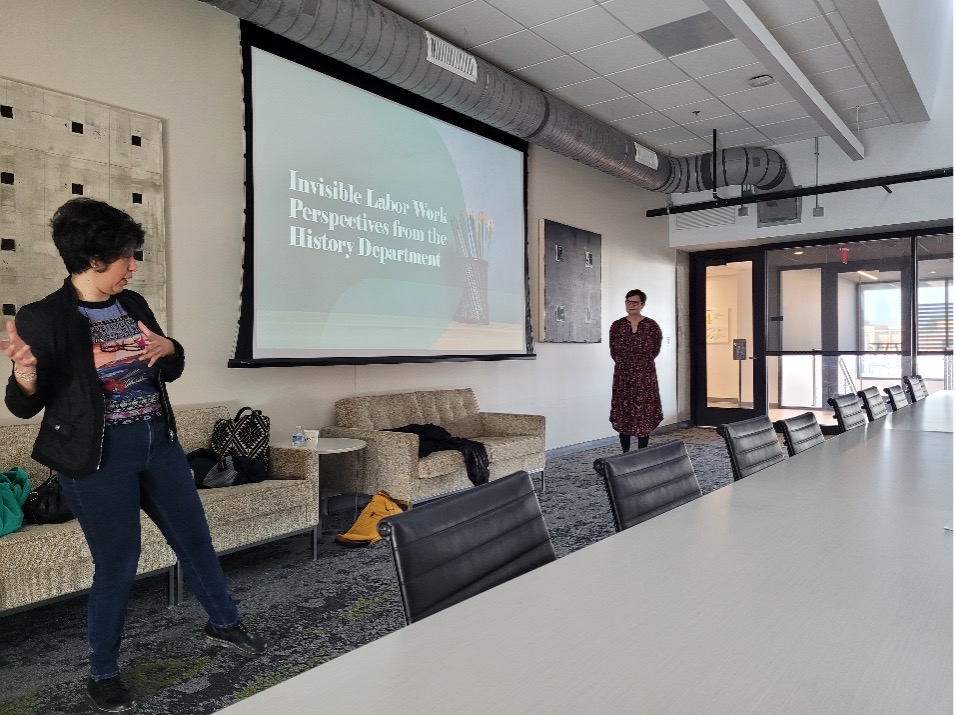UNT Academic Workload Initiative
- Strategic Projects
- Academic Workload Initiative
- COACHE Faculty Job Satisfaction Survey
Project Overview

UNT's commitment to ensuring equitable and accessible faculty workload guidelines is an essential factor supporting faculty success. The UNT Academic Workload Initiative represents the university’s commitment to an inclusive academic environment in which faculty workload responsibilities are distributed fairly and transparently. The Academic Workload Initiative (AWI) requires that departments and programs implement equitable procedures that empower faculty and academic leaders to balance contributions across teaching, scholarship and creative activity, and service. These requirements contribute to a culture of excellence and collaboration at UNT.
Project Goals
To ensure that faculty workloads are assigned within units in a fair and transparent process, the AWI has accomplished the following goals:
- Assessed faculty and administrators’ perceptions of workload transparency and fairness.
- Provided support, resources, and guidance to department chairs, deans, and faculty workload committees to enhance workload transparency and clarity for all faculty members.
- Revised UNT workload policy and unit guidelines to require transparency, equity, and fairness.
- Supported units in complying with academic workload policy changes through training and dialogue, sharing best practices from UNT and peer institutions.
Workload Initiative Journey
The AWI journey was multi-faceted, guided by a commitment to engage our faculty and leverage the best faculty workload practices nationwide.
Origins: Unit leaders updated their workload guidelines in 2019, but more work was needed to specify workload expectations for each faculty rank, clarify how service was counted and rewarded, and ensure that all faculty and administrators knew where to locate workload documents.
 Faculty Data and Engagement: We examined faculty data from COACHE, the UNT survey of workload clarity and transparency, and faculty exit interviews
and surveys. We also hosted Dr. KerryAnn O’Meara, who facilitated workshops based
on her work with the NSF-funded Faculty Workload and Reward Project and supported
a yearlong UNT Workload Community of Practice involving 12 chairs across six colleges
to implement the workload practices in their departments.
Faculty Data and Engagement: We examined faculty data from COACHE, the UNT survey of workload clarity and transparency, and faculty exit interviews
and surveys. We also hosted Dr. KerryAnn O’Meara, who facilitated workshops based
on her work with the NSF-funded Faculty Workload and Reward Project and supported
a yearlong UNT Workload Community of Practice involving 12 chairs across six colleges
to implement the workload practices in their departments.
Policy Changes: The Workload Community of Practice provided feedback to the Faculty Policy Oversight Committee as they updated UNT Policy 6.027 (Academic Workload). The feedback helped ensure faculty workloads were transparent, clear, accountable, credit-based, and aligned with faculty rank work expectations.

Administrator Input: Deans and chairs provided feedback on workload policy, procedural changes, learning resources, and timelines.
Policy Updates: The UNT Faculty Policy Oversight Committee solicited feedback from the Workload Initiative CoP to inform their updates to UNT Policy 6.027. These policy updates increased workload transparency, credit, clarity, accessibility, and accountability.
Training and Dialogue Session: Faculty Success created a two-part workload training on Bridge to help unit leaders understand and implement effective unit workload practices. Faculty Success will also hold faculty dialogue sessions to answer faculty and unit leader questions and host guest speakers and UNT exemplars.
Next Steps: All UNT departments and programs will implement their revised workload guidelines by September 1, 2025. 67% of units' revised guidelines were approved in June 2025; by mid-August 98% of guidelines had been approved. The Faculty Success office will monitor the effects of the revised guidelines on departmental and university climate, faculty job satisfaction, and faculty grievances.
Want to know more?
- UNT Policy 6.027, Academic Workload Policy
- 6.027 Workload Guideline Implementation Checklist
- Faculty Workload Report (ACE)
- Faculty Workload Worksheets and Templates (ACE)
- Faculty Work Activity Dashboards: A Strategy to Increase Transparency (2020) — KerryAnn O’Meara, Elizabeth Beise, Dawn Culpepper, Joya Misra and Audrey Jaeger, from Change: The Magazine of Higher Learning, 52:3, 34-42.
- Each college has a Workload Initiative Project Lead, who may be the academic associate dean or a proxy. Ask your department chair how you can find out the status of your department and college's workload policy progress.